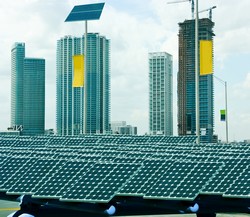City growth and sustainability
Economically strong cities of developing countries often drive their national economies. Such urban economic resources can help governance of cities towards sustainability. The CHANCE2SUSTAIN(opens in new window) (Urban chances: City growth and the sustainability challenge; comparing fast growing cities in growing economies) project compared 10 cities in 4 fast-growing countries. The comparison showed how cities with different patterns of economic growth utilise PSK in governance towards sustainability. PSK includes expert and non-expert knowledge of the cities and various neighbourhoods. The team pitched the research at several different theoretical levels. The study produced a model linking PSK management and direct city governance towards sustainable development. Parameters of the model included economic growth, social inequality and vulnerability, and environmental governance. For each city, the research considered five domains of economic growth via megaprojects. The domains included social mobilisation and exclusion, environmental governance focused on water issues, spatial knowledge management and participatory city budgeting through fiscal decentralisation. Results indicated that complex territorial histories produce human geography within a network of cities. The concept of relational space suggested many urban phenomena relate to sets of political economic and spatial connections. The main result was a redefinition of the concept of configuration. In context, the term means the combination of elements contributing to decision-making about urban development and related outcomes. CHANCE2SUSTAIN's improvement in understanding of how fast-growing cities affect sustainable development helped tailor policy outcomes.







